Each month we bring you the latest in research news and information on obsessive compulsive disorder (OCD). This month’s edition also features a special quarterly research highlight on body dysmorphic disorder (BDD).
Spotlight is also available via email so you can receive the latest research news and information directly in your inbox. Sign up to receive future issues by going here and selecting the “Spotlight” option on our email signup form.
Making Headlines
OCD advocates and stories making news around the globe this spring 
Why Talking About Mental Health Matters
Huffington Post, May 10, 2016
Amy Keller Laird, the editor-in-chief of Women’s Health, reflects on a comment another colleague made about Keller Laird’s OCD diagnosis making her a better employee. While Keller Laird says the colleague likely “meant this as a compliment,” she uses the experience as a way to examine the power of words and phrases in shaping conversations on mental health.
OCD: It’s not just the media who doesn’t understand
OCD and Families, April 7, 2016
A guest article by mental health advocate Melanie Lefebvre pulls examples from recent media headlines to discuss what the term “OCD” really means, and why OCD is, as Melanie writes, “not as mysterious as some think.”
OCD: What’s Neat and What’s Not
Molly Schulson, May 13, 2016
Completed as part of a senior project for a creative non-fiction course, Brown University senior Molly Schulson compiles stories and experiences from several of her fellow students affected by OCD, as well as information on treatment and research from expert sources into a 20-minute podcast.
SCB Showcase
Members of the IOCDF Scientific & Clinical Advisory Board (SCB) are among the best clinicians and investigators in the United States who treat and/or conduct research in the field of OCD and related disorders. Here, we recognize SCB members whose work has recently turned heads in the scientific community or general public.
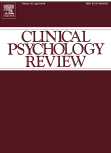 A meta-analysis of family accommodation and OCD symptom severity ($)
A meta-analysis of family accommodation and OCD symptom severity ($)
Clinical Psychology Review, April 2016
Family accommodation behaviors have been consistently linked to various negative outcomes for individuals affected by OCD. However, the nature of this link varies in how and how much it has an effect from study to study, prompting researchers to question whether a moderating factor (or something that is effecting treatment outcomes besides family accommodation, such as age, gender, co-morbid diagnoses, or other variables) may have an influence. This meta-analysis examined 41 studies to see what patterns emerged from the existing literature. The study’s authors, including SCB member Eric Storch, PhD, argue their findings may be used to guide clinical care and inform future investigations by providing a more nuanced understanding of family accommodation in OCD.
OCD Research Corner
A monthly roundup of the latest in OCD research from scientific journals and other publications
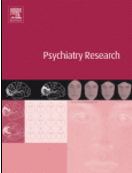 The familiality of specific symptoms of obsessive-compulsive disorder ($)
The familiality of specific symptoms of obsessive-compulsive disorder ($)
Psychiatry Research, May 30, 2016
This study examines whether a family history of specific OCD symptoms (such as hoarding, contamination/cleaning, symmetry/ordering, etc.) is associated with the same OCD symptoms presenting in future generations. The roles of co-occurring tics and age of onset of OCD are also assessed. Results found “distinct familial associations” with hoarding symptoms, as well as cleaning and contamination symptoms. The study’s findings suggest that certain OCD symptoms are more linked to family history than others, which can have significant implications for our understanding of OCD.
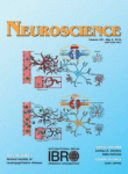 Using mice to model Obsessive Compulsive Disorder: From genes to circuits ($)
Using mice to model Obsessive Compulsive Disorder: From genes to circuits ($)
Neuroscience, May 3, 2016
Could mice be the key to unlocking improved treatments for OCD? The author reviews several studies examining new work being done in mice that involves specifically modifying different genes and brain circuits in order to figure out the underlying pathological processes of OCD.
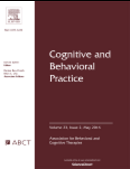 Summer Camp Program for Children With Obsessive–Compulsive Disorder: Description and Preliminary Observations ($)
Summer Camp Program for Children With Obsessive–Compulsive Disorder: Description and Preliminary Observations ($)
Cognitive and Behavioral Practice, April 16, 2016
Summer camp programs have long been linked to positive growth and development in children, but new research is beginning to examine the potential of combining a traditional summer camp model with different cognitive behavior therapy concepts. The authors of this study examine preliminary findings from a weeklong, 25-hour summer camp pilot program for kids with OCD. Feedback from both campers and their parents suggest that this form of treatment has a strong potential for targeting both core OCD symptoms and general child development (such as social, emotional, and motor skills development). The study also underscores the ability of incorporating exposure and response prevention (ERP) activities into a camp model as a complement to traditional evidence-based treatment for childhood OCD.
IOCDF Research Resources
Find other research-related resources from the IOCDF, including:
- Join a research study as a participant
- Learn about the IOCDF Research Grant Program
- Donate to the IOCDF Research Grant Fund
For researchers:
- Recruit participants for an IRB-approved research study
- Attend the IOCDF Research Symposium at the 23rd Annual OCD Conference in Chicago

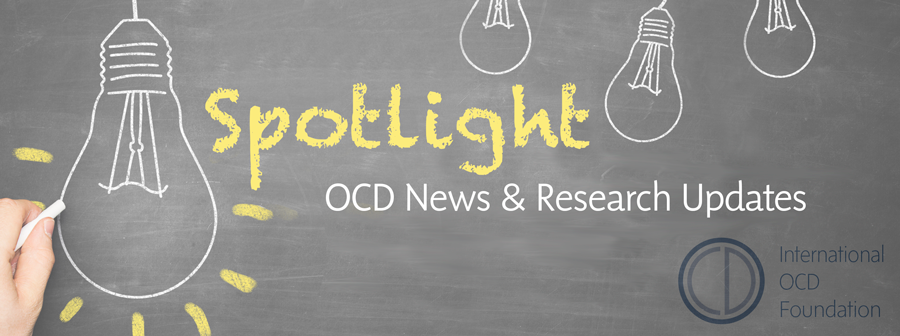
What research had been done on transcranial magnetic stimulation and patients with OCD and depression not responding to standard therapy
Do you know where an MRS scan magnetic resonance spectroscopy can be done in Canada or the US?